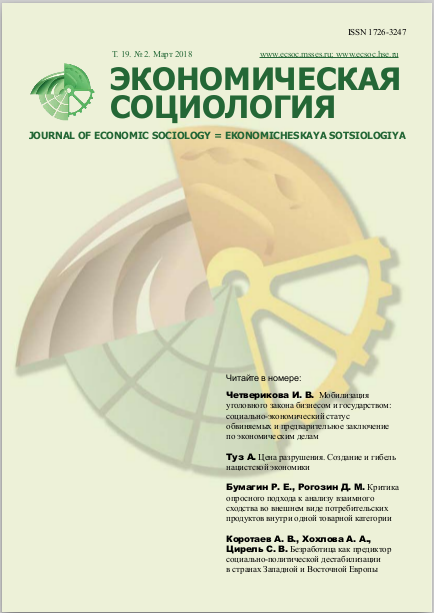Unemployment as a Predictor of Socio-Political Destabilization in Western and Eastern Europe
Abstract
Powerful political destabilization processes in recent years (such as Arab Spring) have brought attention to unemployment as a possibly important factor in political destabilization. However, the results of different studies, devoted to exploring the relationship between unemployment and instability, are highly contradictory with respect to the direction, strength, and significance of the detected correlations, especially in high income economies. This article examines the impact of unemployment on political destabilization in non-postCommunist (Western) and post-Communist (Eastern) Europe. We use the World Bank data on annual unemployment rates in 45 European countries, numerical values of instability indicators from the CNTS database from 1991–2014, and a modified version of linear regression analysis for this research. The results indicate a strong positive correlation between unemployment rate and sociopolitical destabilization indicators in non-post-Communist countries and a weak negative correlation in post-Communist ones. Moreover, we do not find a single positive statistically significant correlation of the unemployment rate with any of the indicators of socio-political destabilization for post-Communist countries. We see the main reason for different reactions to unemployment in the differences in the amounts, timing, and conditions for social payments. The larger the sizes of benefits and periods of payments (Western Europe), the higher the protest moods and the participation in anti-government actions. The smaller the benefits (Eastern Europe), the lower the participation in protest activities. Additional factors are constituted by the labor migration from the East to the West in Europe, which washes out “combustible material” from the East, but provokes protest activities in favor of anti-immigrant laws in the West, the “Olson-Huntington effect,” and “the patience and understanding” factor of the 1990s.













